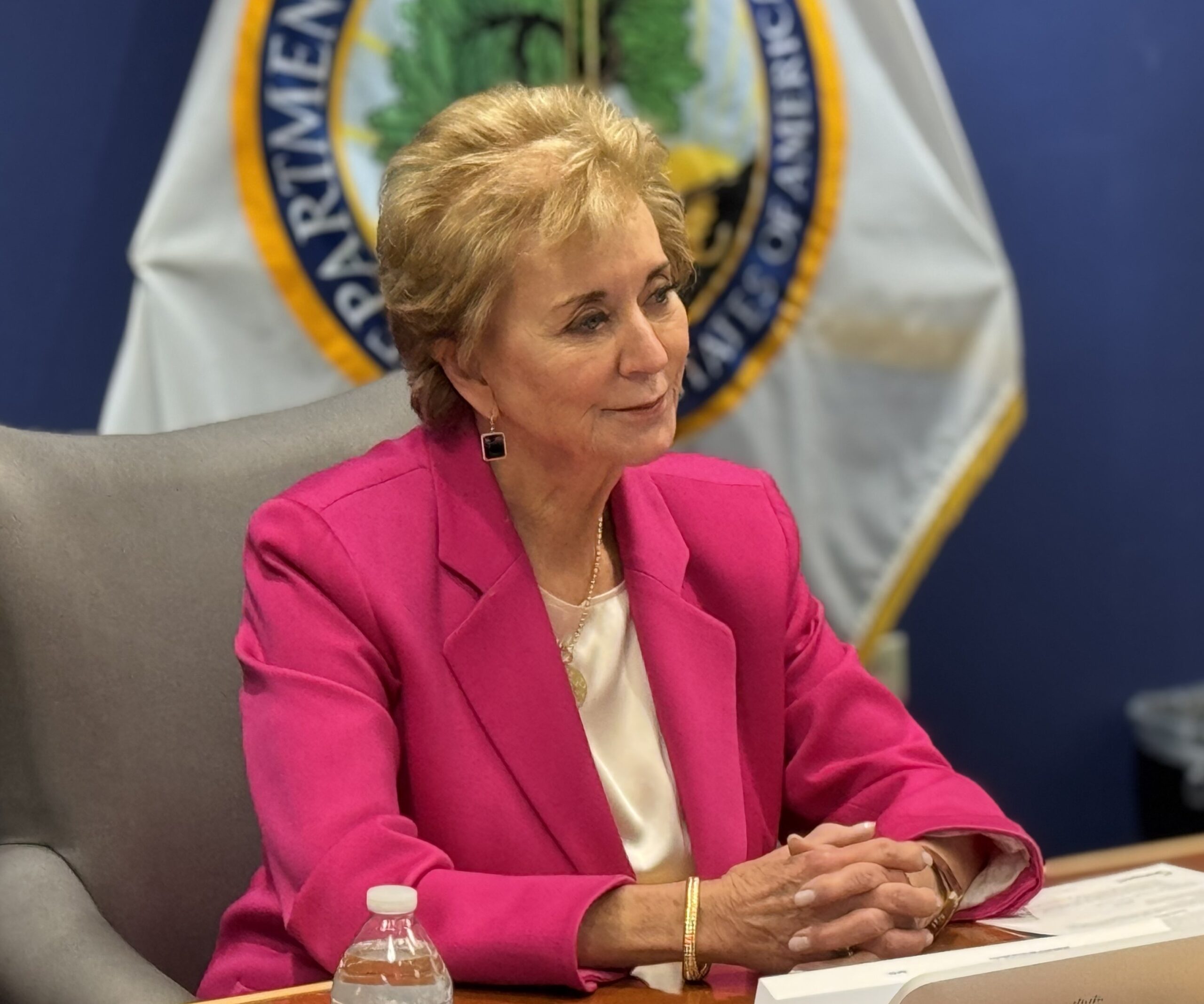DOD Considers Pro-America Test For K-12 Schools, Academies
The article discusses a proposed change in U.S. military and Department of Defense Education Activity (DODEA) schools’ testing policies to include the Classic Learning Test (CLT) as an accepted college admissions exam alongside the SAT and ACT. This change, introduced as an amendment to the National Defense Authorization Act (NDAA), aims to encourage a more traditional, classical education focused on math, logic, and Great Books, moving away from what critics view as politicized and declining standards in current standardized tests like the SAT and Advanced Placement (AP) exams.
Senator Jim Banks, who championed the amendment, argues that accepting the CLT would broaden opportunities for students from diverse educational backgrounds, including many homeschoolers, and ensure military academies attract top talent. The amendment follows Defense Secretary Pete Hegseth’s public support for the CLT, aligning with his advocacy for classical education rooted in Western tradition and virtue formation.
The article contrasts the CLT’s classical education model with critiques of the College Board’s SAT, AP courses, and Common Core standards, which it claims have lowered academic rigor and introduced political bias, especially in history curricula. The CLT also plans to offer its own dual-credit high school classes as an alternative to AP courses.
Classical education, growing rapidly in the U.S., emphasizes primary sources, traditional subjects, and character progress. Several states have already approved laws allowing CLT testing and college credit opportunities. Senator Banks has also proposed a separate bill to mandate CLT acceptance at military academies and federally operated K-12 schools.
While some senators opposed the NDAA amendment to include CLT as a presumptive entrance exam at military academies, the Department of Defense is currently evaluating how to incorporate the CLT into its education programs to support student college and career readiness.
The article’s author, Joy Pullmann, is a classical education advocate and executive editor of The Federalist, highlighting ongoing debates about education quality, politicization, and alternatives in the U.S. military and broader education system.
Future military officers and the children of U.S. service members may soon be able to satisfy government testing mandates with a new test that prioritizes traditional math and the Great Books. Because tests strongly influence what teachers teach, this would encourage more traditional, less politicized instruction for the 70,000 or so children attending Department of Defense, or DODEA, K-12 schools.
The current Senate version of the National Defense Authorization Act (NDAA) moving through Congress would require DODEA schools to offer 11th-grade students the college admissions test of their parents’ choice. This would allow students to take the Classic Learning Test, a Great Books competitor to the SAT and ACT college entrance exams. NDAA is a must-pass annual military spending bill. Sen. Jim Banks, R-Ind., successfully added that amendment during markup in July.
“Accepting the CLT alongside the SAT and ACT opens the door for talented students from every educational background. It’s about making sure our military academies attract the best and brightest,” Banks said in a statement to The Federalist. “Many homeschool students take the CLT, which focuses on reading, logic, and classic texts in a way other tests don’t. These are good skills to take to the academies and putting this into law would ensure future administrations can’t unilaterally undo what Secretary Hegseth is trying to achieve.”
The NDAA amendment occurred after Defense Secretary Pete Hegseth tweeted his support for accepting CLT at military academies in May. Hegseth is the coauthor, with David Goodwin, of a 2022 New York Times bestselling book about classical education, Battle for the American Mind. The book follows up on a documentary Hegseth hosted for Fox News.
We’re going to make this happen James. The CLT is the gold standard, and our academies need to attract the very best. https://t.co/JoAzp1zW3a
— Pete Hegseth (@PeteHegseth) May 3, 2025
Four Republican senators voted against another amendment from Banks to require U.S. military academies such as West Point to accept the CLT as applicants’ college entrance exam. Those are Sen. Joni Ernst of Iowa, Sen. Deb Fischer of Nebraska, Sen. Mike Rounds of South Dakota, and Sen. Tim Sheehy of Montana. If these four had voted for this amendment, it also would be in the NDAA this year.
Of the four, only Ernst’s office replied to a Federalist request for comment, claiming the military academies already accept CLT. “My 23 years in the Army Reserves and National Guard taught me that there is no single recipe for what makes a great soldier or great leader,” said Ernst in a statement provided to The Federalist. “The service academy admissions process reflects that by accepting several standardized tests, including the Classical Learning Test, and factoring in academic success, leadership, and much more. I will always fight to ensure that no matter if you went to public, private, or home school, there is a place in the service academies for you.”
When The Federalist noted all the military academies and the White House publicly state all applicants must submit either the ACT or SAT in their applications, with no mention of CLT, Ernst’s office did not respond. It may be that Ernst recognizes the defense secretary can require CLT at military schools, but putting that measure in NDAA prevents a different presidential administration from revoking such a requirement. A CLT competitor, the ACT, is headquartered in Iowa. It was bought by a private equity firm last year.
An Alternative to Woke College Exams
The CLT arose 10 years ago as a market response to the increased politicization of the College Board. College Board owns the SAT and Advanced Placement (AP) tests and curricula. AP classes grant high schoolers college credit for passing tests after completing AP curricula. AP classes range from American history to psychology to biology. High school students can skip up to two years of college by successfully taking many such courses.
College Board’s president since 2012, David Coleman, was a chief architect of Common Core, a national K-12 testing system the Obama administration pushed on states. During Coleman’s leadership, the SAT lost significant market share to the ACT.
Also during Coleman’s presidency, the SAT has undergone two major revisions to lower standards as U.S. students educated by Common Core and devastated by lockdowns learn less and less. The latest SAT revision shortened reading comprehension passages from 500-750 words to 25-150 words, or the length of a tweet.
Coleman has overseen other missteps at College Board, including adding then removing an “adversity score” to test results as an affirmative action measure, and the disastrous rollout of heavily politicized AP course redesigns. The most controversial of these were revisions to AP U.S. History (APUSH), World History, and European History courses.
These AP classes are often the last and most extensive history classes America’s future leaders take. Their revised versions require students to read reams of anti-American critical theory while short-shrifting American founding texts. Numerous historians publicly criticized these history classes’ revisions, arguing they were deeply biased, incomplete, of lowered quality, and riddled with factual errors.
For example, the AP European history class doesn’t mention Christopher Columbus, the AP U.S. history class “gives no hint of America’s defining culture of liberty,” and all AP history classes sideline the influence of religion on world affairs and give short shrift to the history of liberty while emphasizing “social justice,” say analyses from the National Association of Scholars. Nearly 2 million American high schoolers take an AP history exam each year, and states pay the College Board and ACT tens of millions of dollars every year via testing contracts.
The CLT announced at the end of July they will soon compete with College Board’s AP classes, offering their own dual-credit high school classes without such flaws. CLT is seeking seed funding from investors for the project, CLT founder and CEO Jeremy Tate told The Federalist in a phone interview.
“You can fundamentally reorient education with a different assessment that draws from the Western tradition,” Tate noted.
What Is Classical Education?
The United States currently has an estimated 1,500 classical schools, and they are growing exponentially. One-quarter of that total have opened since 2020, according to a 2024 study by Arcadia Education. The study projected that 1.4 million U.S. students, or 2.4 percent, will be classically educated by 2035. In the 2023-24 academic year, it estimated nearly 700,000 American children were being classically educated.
Classical education is an elite form of education for the common man. Classical schools teach the Western great books by using age-appropriate primary source documents instead of textbooks as much as possible.
Classically educated children devote core instruction time to grammar, logic, and writing, as well as traditional math and science. They memorize great poetry, hymns, folk songs, and language rules. Classical schools deliberately cultivate the virtues and habits necessary for republican self-government, such as faith in the Triune God, honesty, respect for God’s creation, hard work, attentiveness, charity towards others, and perseverance.
Arkansas, Florida, Oklahoma, Texas, and Wyoming have passed laws making CLT’s college entrance and annual K-12 tests an option in their states, from school choice programs to entrance and scholarships at state higher education institutions. Approximately 300 higher education institutions currently accept CLT, which was created in 2015.
Banks has also introduced a standalone bill, the Promoting Classical Learning Act, that would require the military academies to accept CLT. That bill would also require all federally administered K-12 schools to offer CLT to all 11th-graders. The federal government directly runs both DODEA schools and Bureau of Indian Education schools.
While Congress considers such legislative options, the DOD under Hegseth is also considering exercising its authority to integrate CLT into the education institutions it runs.
“The Department is currently assessing options for accepting the Classic Learning Test (CLT) as part of Military Service Academy admissions, and as part of its broader efforts to support student pathways into college and overall career readiness,” a DOD official told The Federalist in response to a query. “While this assessment is underway, DoDEA remains committed to supporting all students in pursuing their post-secondary goals. Students who are interested in taking the CLT are encouraged to work with their school counselors, who can help to facilitate the process and provide guidance on resources and opportunities.”
Joy Pullmann is executive editor of The Federalist. Her latest book with Regnery is “False Flag: Why Queer Politics Mean the End of America.” A happy wife and the mother of six children, her ebooks include the NEW “300 Classic Books for Ages 9 to Adult,” the bestselling “Classic Books For Young Children,” and “101 Strategies For Living Well Amid Inflation.” An 18-year education and politics reporter, Joy has testified before nearly two dozen legislatures on education policy and appeared on major media including Tucker Carlson, CNN, Fox News, OANN, NewsMax, Ben Shapiro, and Dennis Prager. Joy is a grateful graduate of the Hillsdale College honors and journalism programs who identifies as native American and gender natural. Joy is also the cofounder of a high-performing Christian classical school and the author and coauthor of classical curricula. Her traditionally published books also include “The Education Invasion: How Common Core Fights Parents for Control of American Kids,” from Encounter Books.
" Conservative News Daily does not always share or support the views and opinions expressed here; they are just those of the writer."




